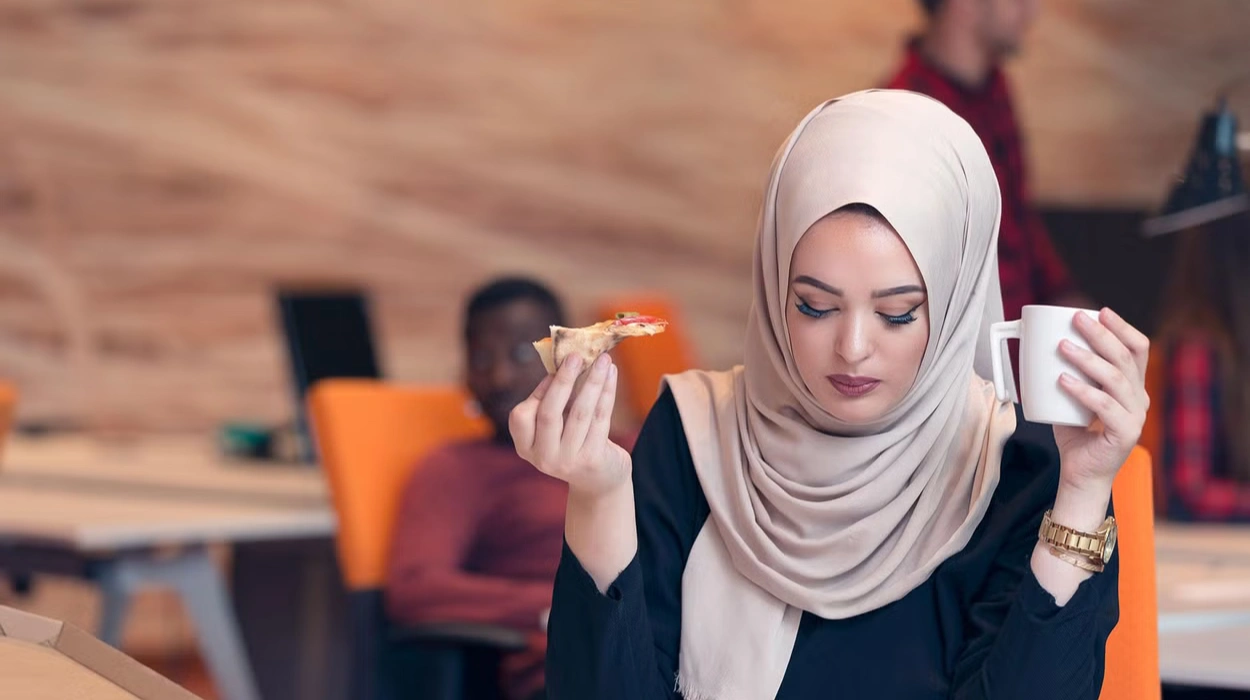UK (Parliament Politics Magazine) – A survey revealed 48% of Britons think Muslim women are pressured to wear the hijab, but many Muslim women at Jalsa Salana say it represents pride and faith.
As reported by The Independent, around 50% of Britons believe the hijab is worn under pressure, but Muslim women say the choice empowers them; it is not imposed.
What did Brits say about why women wear hijab?
A new YouGov poll suggests that 49% of Britons believe Muslim women wear the hijab due to social or family pressure. Only 26% see it as a matter of personal choice.
A poll commissioned by the Ahmadiyya Muslim Community surveyed 2,130 adults across the UK. The findings come as more than 20,000 Muslim women gather at Jalsa Salana UK, Britain’s largest Islamic convention.
The poll also revealed that 53% of Britons believe Islam conflicts with British values. It found that Muslim immigrants face significantly more negative perceptions, with 41% holding unfavourable views. In comparison, the figures were lower for Christians (7%), Jews (13%), Sikhs (14%), and Hindus (15%).
According to the survey, 31% of Britons believe Islam promotes violence. The figures point to ongoing concerns about the religion’s public image.
What did Dr Munazzah and Dr Maleeha say about hijab and choice?
Volunteering at Jalsa Salana, Dr Munazzah Chou is one of over 6,000 women helping manage the 210-acre temporary city in Hampshire.
She said,
“There are many choices we make every day. I have chosen to wear the hijab as an expression of my religious beliefs.”
Dr Chou stated,
“Wearing the hijab is a choice like any other, and the hijab enables us to feel spiritually grounded in a world that is materially oriented”
She said that isolated incidents and one-sided discussions are driving widespread public misconceptions.
She added,
“Public perceptions are not formed in a vacuum. I do think that media coverage of Muslim women perpetuates the idea that we are ‘other’ rather than fully fledged members of society.”
Sharing a similar view, Dr Maleeha Mansur stated that she found wearing the hijab to be “empowering.”
She said, “
It’s empowering because when I’m going about my day-to-day life, I don’t have to think or worry about appearances – I don’t think that’s the most important thing. It’s empowering because I choose who gets to see my beauty and who doesn’t.”
What did Iffat Mirza-Rashid say about the hijab helping people see the real her?
Iffat Mirza-Rashid, 26, a PhD student at Cambridge University, said her decision to wear the hijab stems from personal belief and conviction.
She stated,
“Look at society today – there’s a lot of pressure on women to look a certain way. The hijab is a powerful response and resistance to that sort of pressure. It encourages the people around us to see us for who we are, rather than what we look like – and that’s empowering.”
The researcher added,
“It’s just a piece of cloth – but then it’s so much more, because it’s a reflection of your beliefs. It’s powerful to be able to express your beliefs because you can make a certain statement about who you are and what your priorities are.”
Why did Zia Yusuf step down from Reform UK leadership?
Zia Yusuf, a Muslim, has resigned as Reform UK’s chairman, criticising a party MP’s question to the prime minister about banning the burqa as “dumb.”
After less than a year in the role, he announced his resignation, stating that supporting Reform UK’s election campaign was no longer a good use of his time.
Mr Yusuf said,
“Eleven months ago, I became chairman of Reform. I’ve worked full-time as a volunteer to take the party from 14 to 30%, quadrupled its membership and delivered historic electoral results. I no longer believe working to get a Reform government elected is a good use of my time, and hereby resign the office.”
Muslim immigrants in the UK
- 3,998,875 Muslims in the UK (2021)
- England: 3.8 million (6.7%)
- Scotland: 119,872 (2.2%)
- Wales: 66,947 (2.2%)
- Northern Ireland: 10,870 (0.6%)
- Muslim men: 1,960,762
- Muslim women: 1,907,371
- 44,000 irregular arrivals in the UK
- 86% came by small boats
- Afghans were the top group (16%), likely mostly Muslim


